Integration Continuous Integration Guide
Important
Continuous Integration is key due to the complexity of the ONAP projects. Several chains have been created:
Daily stable chain
Daily master chain
Gating: On demand deployment of a full ONAP solution to validate patchsets
They are run on different environments (Orange labs, DT labs, Azure Cloud).
The following document will detail these chains and how you could set up such chains and/or provide test results to the community.
Integration CI Ecosystem
Overview
The global ecosystem can de described as follows:
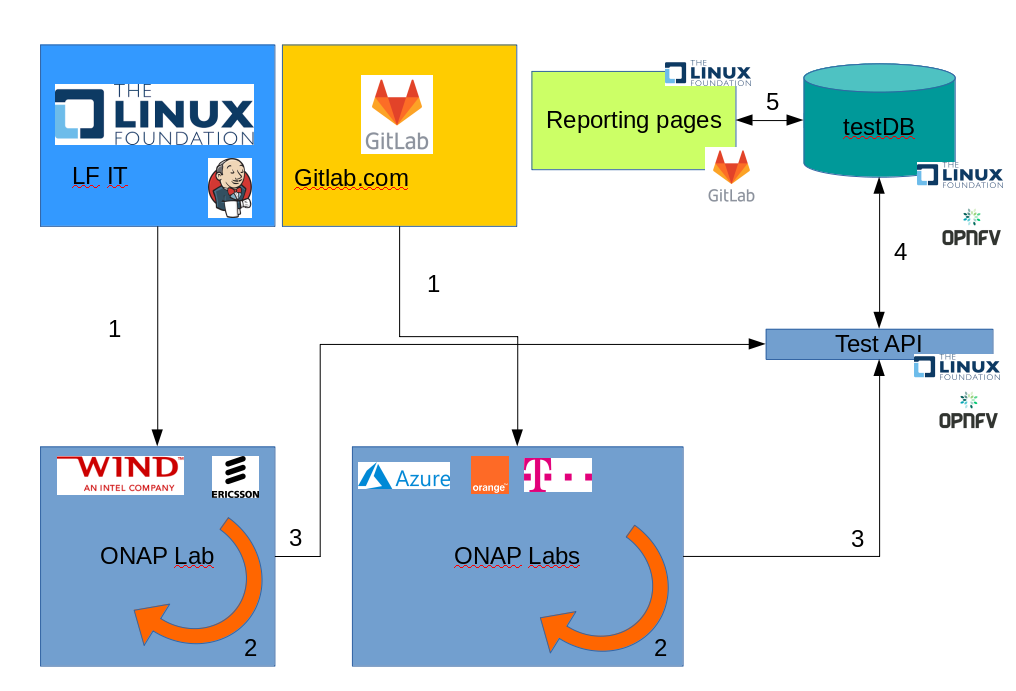
Several chains are run in ONAP. The CI chains are triggered from different CI systems (Jenkins or gitlab-ci) (1) on different target environments hosted on community labs (Windriver, Orange, DT, E///) or Azure clouds. Jobs (installation, tests) are executed on these labs (2). At the end, the results are pushed through the OPNFV test API (3) to a test database (4) hosted by Linux Foundation on http://testresults.opnfv.org. Results can be reported in different web pages hosted on LF or on gitlab.com (5).
Daily Chains
CI daily chains (Master and last Stable) are run on Orange, DT using gitlab-ci jobs and Ericsson using jenkins jobs.
Gating
OOM gating has been introduced for El Alto. It consists of a deployment followed by a set of tests on patchsets submitted to OOM repository.
The CI part is managed on gitlab.com and the deployment is executed on ONAP Orange lab and Azure clouds. The goal is to provide a feedback - and ultimately to vote - on code change prior to merge to consolidate the OOM Master branch.
The developer can evaluate the consequences of his/her patchset on a fresh installation.
The gating is triggered in 2 scenarios:
new patchset in OOM
comment with the magic word oom_redeploy is posted in the Gerrit’s comment section
The procedure to submit new feature in CI is done in 3 steps as described in the figure below:
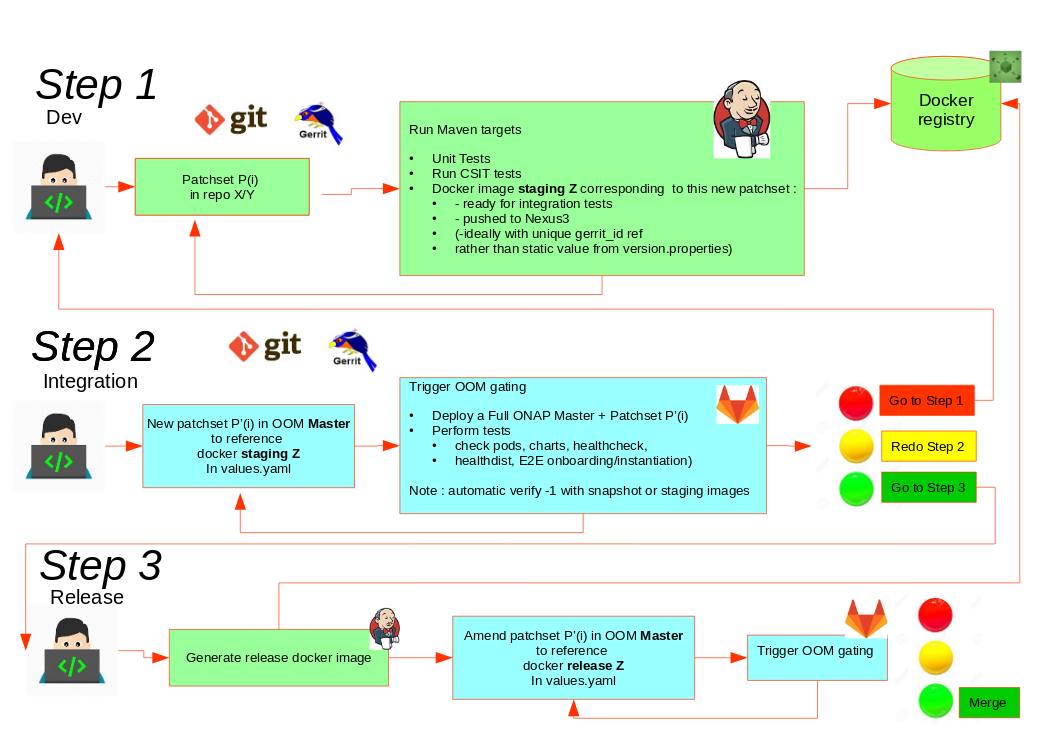
Visualization of the CI pipelines
As the CI chains are triggered from different systems, several web interfaces can be used to visualize them.
A web site has been created to centralize the links on http://testresults.opnfv.org/onap-integration/index.html
For Gating and gitlab.com based CI chains, the pipelines consist in pipelines of pipelines managed through the chaining of .gitlab-ci.yml file thanks to an Open Source deployment called chained-ci (https://gitlab.com/Orange-OpenSource/lfn/ci_cd/chained-ci). A visualization tool is available to list all your chains as described in the figure below:
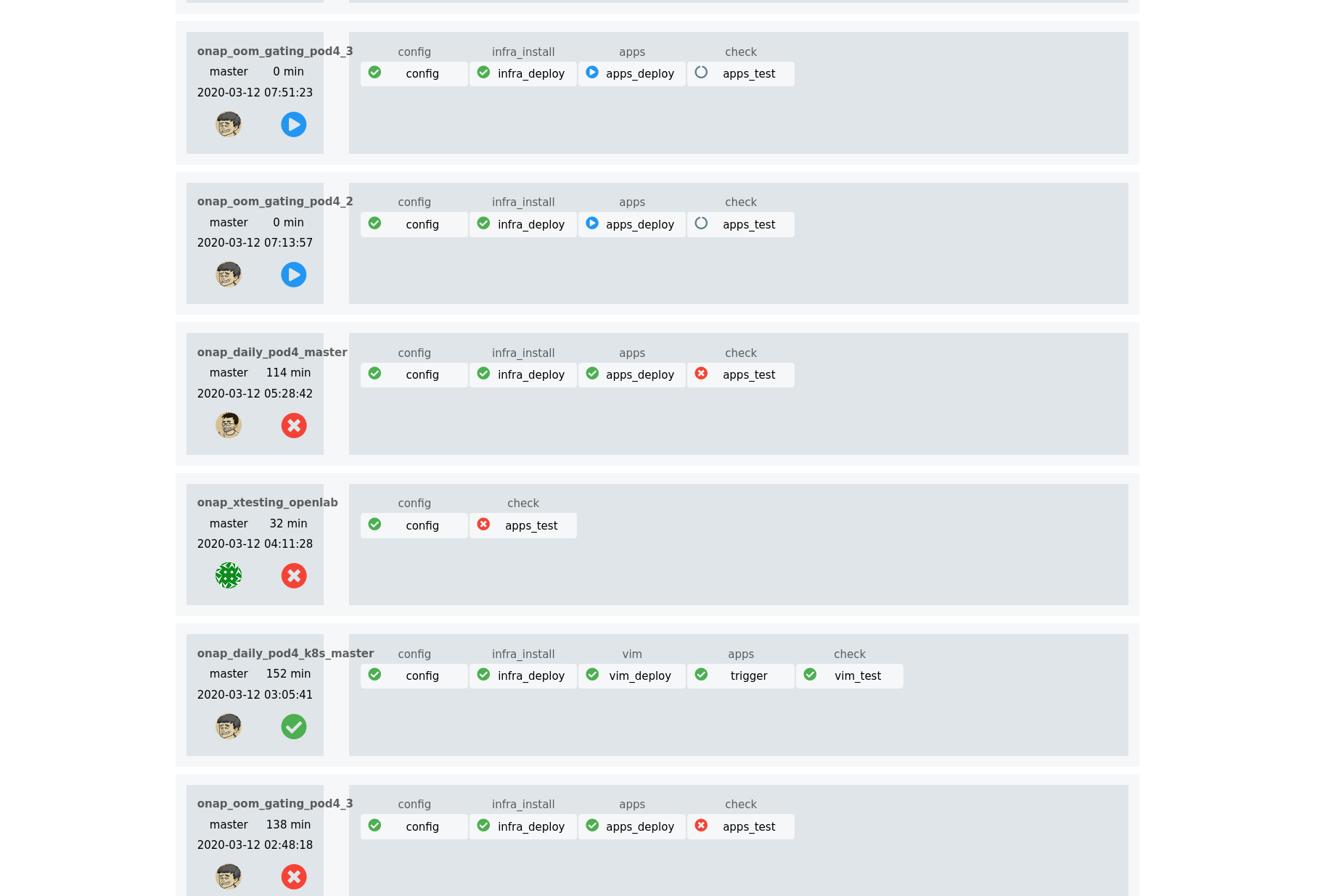
If you click on any element of the chain, you will open a new window:

In order to provide the logs to the developer an additional web page has been created to summarize the tests and grant access to their associated logs:
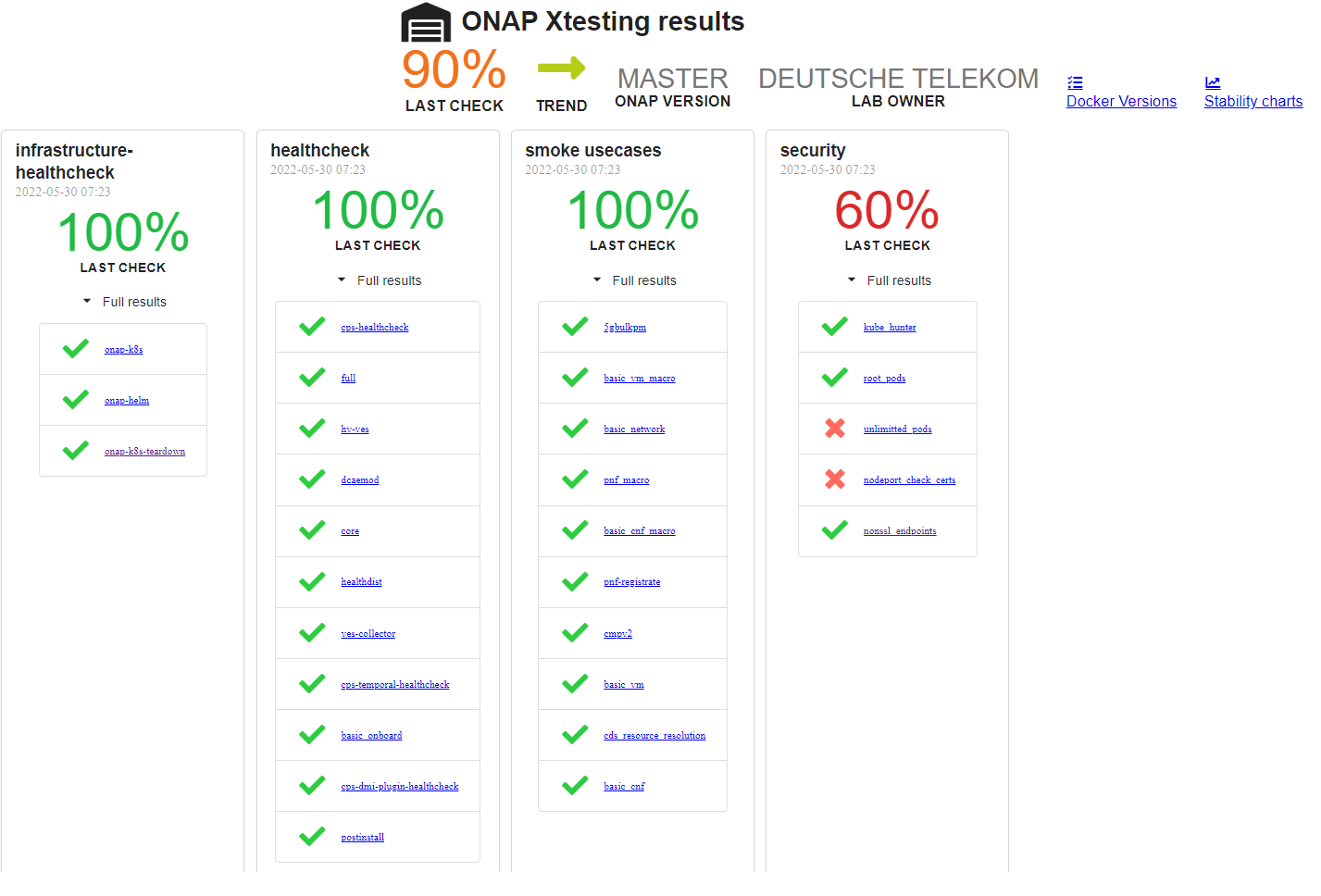
Additionnaly, for the daily chain, another page displays the results as time series, allowing to see the evolution of the tests over time.
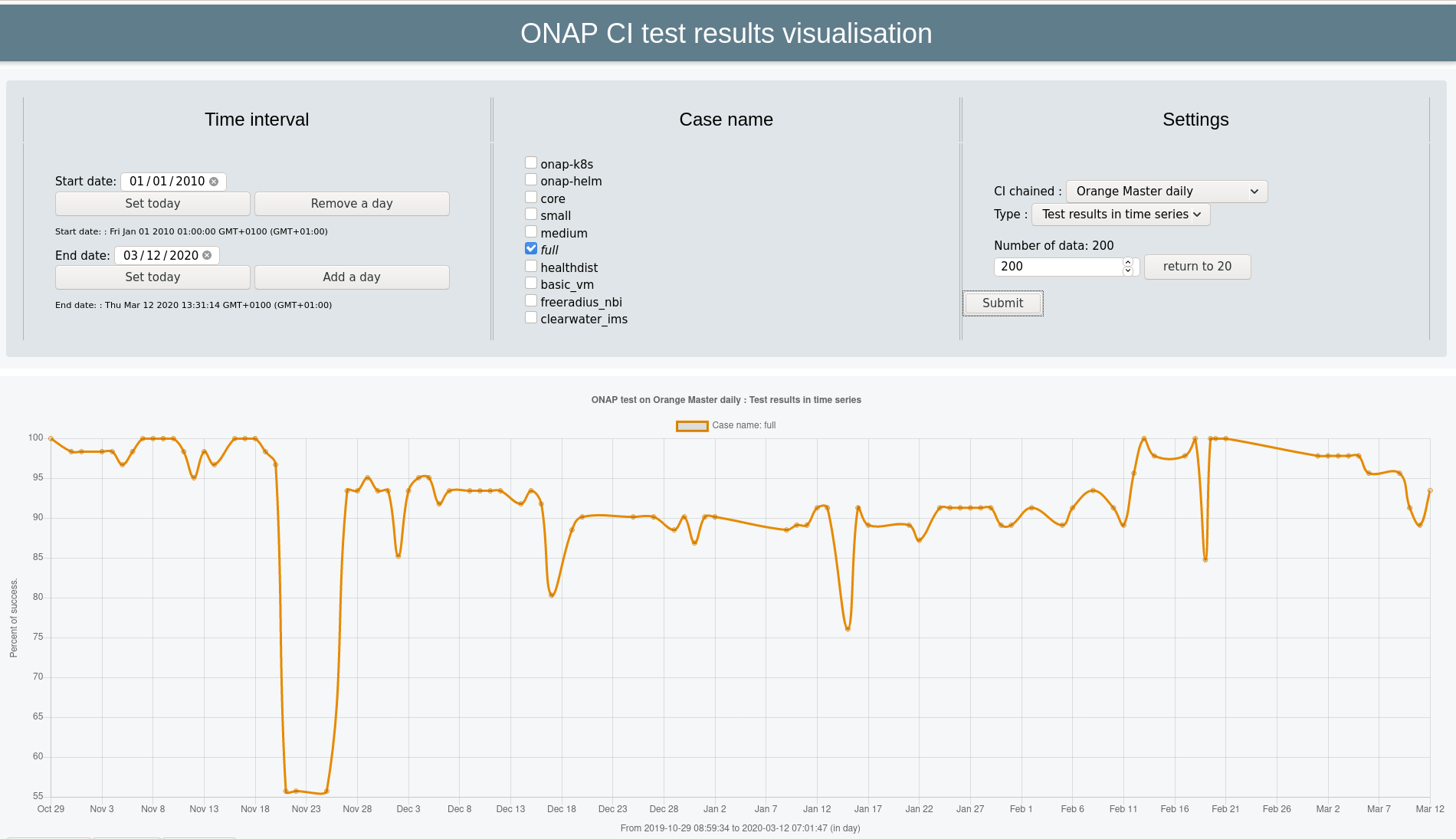
Setup Your Own CI Chains
If you want to setup a gitlab.com based CI chain, and want to use chained-ci, you can follow the tutorial on https://gitlab.com/Orange-OpenSource/lfn/ci_cd/chained-ci-handson
You should be able to chain your automation projects:
Create resources
Deployment of Kubernetes
Test of your Kubernetes (using OPNFV functest-k8s tests)
Deployment of your ONAP (you can use your own automatic installation procedure or https://gitlab.com/Orange-OpenSource/lfn/onap/onap_oom_automatic_installation/)
Test ONAP thanks to the differnet ONAP xtesting dockers covering infrastructure healthcheck, components healthcheck tests, end to end tests, security tests.
If you want to report your results to the community, do not hesitate to contact the integration team. The Test database is public but the pods must be declared to be allowed to report results from third party labs.